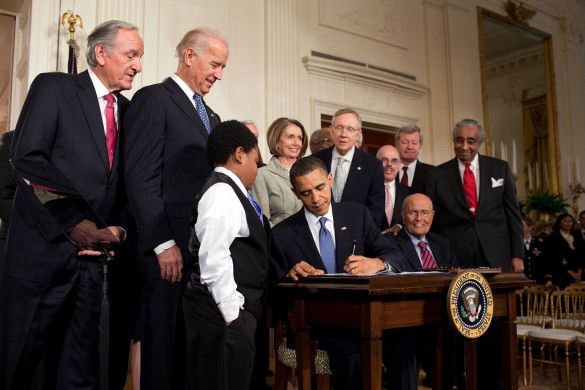ObamaCare – Where Free Is Very Expensive

Telling Tips is a series of articles from local experts to help you save money, make better decisions and plan for a better future.
Now that the Exchanges are operating, at least somewhat, I know there are a lot of questions. I will try to answer all of your questions. (Or try to find out from Nancy Pelosi.)
Oops. Lost $67 Million. If Found, Return To IRS.
To help pay for Obamacare, the IRS set aside $67 million. The only problem is that it’s lost. If you find it, it’s yours. The IRS has no intention of looking for it. They promise, however, that they will try to keep better record-keeping in the future.
Employers Still Face October 1st Deadline For Employee Notification
All employers are required to provide employees with notices describing the health insurance marketplaces. This is one of the many provisions of the Affordable Care Act that was not delayed. The Department of Labor has created notice templates for employers who provide health benefits and employers who do not. All employers, regardless of their size, must distribute these by October 1, although there is no penalty for failing to do so.
If you already have health insurance through your employer, you do not need to worry about applying for insurance through the exchanges, which should be available on-line by November.
Should An Employee Take The Employer’s Coverage?
You are not obligated to do so but, if not, you may not be able to change your mind later. In addition, you may find that your premiums will increase because your employer is not contributing to the cost.
In addition, you will probably find that if your premiums are reasonably low, your deductible will be very high. The average premium for the second lowest cost plan, the silver plan, will be $328 before tax credits, but the annual deductible will be more than double that of someone in an employer-sponsored plan. You will be paying about 40 percent of the drug costs, with deductibles ranging from $1,500 to $5,000.
Are You Subject To A Penalty?
Generally, if you are uninsured for three or more months during 2014, you will be subject to a penalty via your tax return due by April 15, 2015.
- For 2014, the penalty is the greater of one percent of your adjusted gross household income, with a minimum of $95 per adult, and $47.50 per child under 18.
- For 2015, the penalty is the greater of two percent of your adjusted gross household income, with a minimum of $325 per adult, and $162.50 per child under 18.
- For 2016, the penalty is the greater of 2.52 percent of your adjusted gross household income, with a minimum of $695 per adult, and $347.50 per child under 18.
Do You Qualify For The Health Care Subsidy?
You qualify if you are single and earn up to $45,960, or are a family of four and earn up to $94,200. You must have insurance through one of the exchanges. If you want an estimate, give me a call.
Your Out-Of-Pocket Costs
The annual limit on out-of-pocket maximums was delayed until 2015 for you if you are in a group health plan. This postponement does not apply to an individual policy you purchase through the exchanges. The annual out-of-pocket limits you must pay were set at $6,350 for an individual and $12,700 for families for 2014.
In other words, if you are paying out-of-pocket for cancer or diabetes treatments, for example, your costs are not capped for another year.
Your W-2 Reporting
Many of you had the value of your medical coverage reported on your W-2 last year under the description as ‘DD.’ Contrary to some information given out by the IRS last year, this reporting is intended for informational purposes only, and is not included in your income, on your W-2 or otherwise. Only those employers who have more than 250 employees will have to report this information. This reporting is the cost of your benefit that your employer is providing for you.
FSA Contributions For 2014
The Affordable Care Act fixed employee contributions to flexible spending accounts (FSAs) for 2013 at $2,500; this cap is to be adjusted for inflation. The 2014 cap should remain the same.
For 2014
- Benefit Limits and Exclusions: Lifetime limits have already been eliminated on certain essential health benefits, and in 2014, annual limits on essential health benefits are phased out.
- Cost-Sharing Limitations: You may see lower deductibles or lower out-of-pocket limits.
- Waiting Periods: Once you are eligible, for coverage, you can enroll within 90 days.
- Fees and Taxes: Insurers and employers will now have a mound of paperwork and additional taxes to pay. Therefore, your cost of health care will increase dramatically.
- Government Reporting: In order to determine if you are eligible for a premium tax credit or cost-sharing subside, you will receive a copy of the coverage report that your employer or insurer submits.
- Wellness Incentives: Wellness incentives may be offered by your employer to reward you for making healthy choices. Your participation will help lower the cost of the health care increase.
Quip: Don’t you long for the good old days when Uncle Sam lived within his income and without most of yours?
Joseph Reisman, of Joseph S. Reisman & Associates, has been serving tax prep and business accounting expertise from his Coney Island Avenue office for more than 25 years. Check out the firm’s website.



